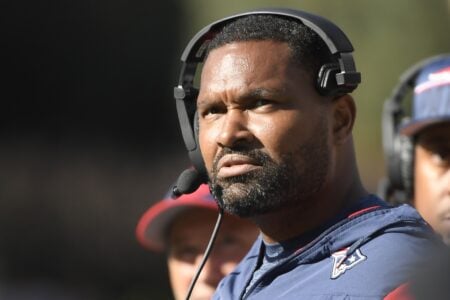The huge flaw in many of your statements, something FootballOutsiders agrees with: football has a much lower sample size than baseball. And lower sample size lowers the value of statistical analysis dramatically. For baseball 162 games is still not enough for some analysis, and 16 games in football is even less.
Statistical analysis assumes that you have enough data that the factors you aren't interested in cancel out. But that doesn't happen in small sample sizes like in football, and that makes many of your statements less reliable.
Not exactly . from FO:
"Football statistics can't be analyzed in the same way baseball statistics are. After all, there are only 16 games in a season. Baseball has ten times more, and even the NBA offers five times more. The more games, the more events to analyze, and the more events to analyze, the more statistical significance.
That is true, but the trick is to consider each play in an NFL game as a separate event. For example, Eli Manning played only 16 games in 2005, but in those 16 games he had 586 passing plays (including sacks) and 29 rushing plays (including scrambles) for a total of 615 events. Manny Ramirez in 2005 played in 152 games and had 650 plate appearances. For the most part, a quarterback who plays a full season will have almost the same number of plays as a baseball hitter who plays in most of his team's games.
A running back will have fewer plays than a quarterback, and wide receivers and tight ends will have even fewer. But there should still be enough plays with most starting running backs and receivers to allow for analysis with some significance. As an example, LaDanian Tomlinson ran the ball 339 times in 2005, and was the target of 77 pass targets (including incompletes), for a total of 416 plays. In general, a starting running back will have 375-450 plays over 16 games. Receivers are used a bit less, and therefore their stats are likely not as accurate. In general, starting wide receivers have 75-150 pass targets over a full season."
Suddenly statistics goes out the window and your opinion is all that matters? The truth is, you have no reliable basis for assigning a 50% probability to those kicks. So your conclusion does not follow.
No. It would be just as accurate to say "If a great player plays long enough for his skills to erode, he will not be as great."
in the Hidden Game of Football, there are FG historical FG result by distance, and my guesses were based on that. if you don't think scientists are ever forced to make assumptions, ok, but you're wrong.
The flaw in statistical analysis as a mantra is that it simply can't take all factors into account. It is certainly a good starting point, it can provide valuable insights, but it has its limitations.
agree, it can't get everything right. but it can get an awful lot right, and prove an awful lot of things right or wrong.


















